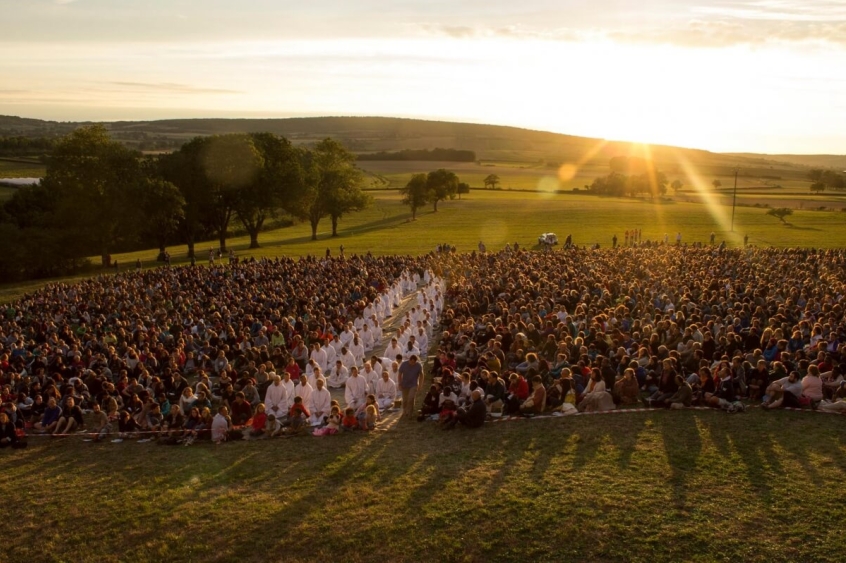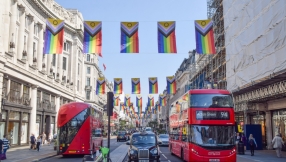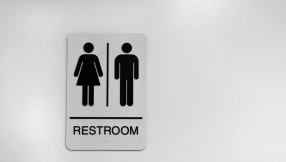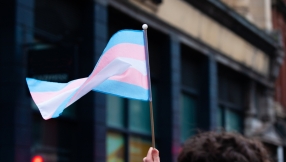
In John 17, just prior to his arrest by the authorities, Jesus prays a heartfelt prayer for unity. "That all of them may be one, Father, just as you are in me and I am in you... I have given them the glory that you gave me, that they may be one as we are one... I in them and you in me – so that they may be brought to complete unity."
Jesus then underlines why He places so much value on unity. "When the world will know that you sent me and have loved them even as you have loved me." So it isn't just an organisational issue – but one of the credibility of the Gospel.
Sadly, since the very early years of the Church which we read about in the Bible and certainly officially since the 4<sup>th Century – the church has been disunited.
Prioritising unity has to be an urgent goal for Christians. But with tens of thousands of denominations worldwide, we're a long way from seeing an answer to Jesus' prayer. But this summer, I've been heartened to think that when an answer comes, we're not just relying on the theologians in Rome, Canterbury or Istanbul. At least part of that answer may be arising in the Burgundy countryside in France.
The Taizé Community is a living, breathing example of unity. I spent last week there along with thousands of young people camping together as part of the 'Gathering Towards a New Solidarity.' Having never been to Taizé before, I was immediately struck by two things. Firstly, the vast range of countries people come from. Almost immediately, I was talking to young Christians from Burma, The Philippines and Taiwan. I soon found I was sharing a room with a South Korean, a Brazilian, and an Australian. But the second kind of diversity was even more encouraging...
Having travelled with a group of charismatic evangelical Anglicans, we were delighted to meet people from a wide variety of churches and denominations. We met Lutherans, Roman Catholics, Greek Catholics, Orthodox, and many others. And although we spent a lot of time discussing our differences and similarities – there was a key ingredient which brought us together. We were worshipping and praying alongside each other. This may sound simple, but in a world still riven by denominational strife (let alone internecine fights within denominations themselves) it was a massive encouragement.
Taizé was founded in 1940 by a young Swiss Reformed man. Brother Roger (as he became) led the community for 65 years until his violent death in the church at Taizé which was commemorated this week by senior church leaders from around the world.
He began with his fellow Protestants, but Brother Roger soon realised the importance of dialogue and friendship with others. Having known the Catholic bishop who went on to become Pope John the 23<sup>rd, the brothers of Taizé were invited to observe the Second Vatican Council – the great reforming movement of the 1960s. Soon, the community was opened up to Roman Catholics and today there are over 100 brothers with Catholics and Protestants of various backgrounds.
With tens of thousands of young people visiting every year, it's not hard to see how this truly ecumenical spirit has already influenced the potential reunification of the Church. Before coming to Taizé, many young people will only have experienced the faith of their family, their church community and maybe their school – which may all share the same theology and traditions. When they experience worshipping alongside Christians from across the globe and from a diverse range of backgrounds – meeting as equals – their pre-conceived ideas of 'the other' must be powerfully challenged.
The young people learn to trust eachother across their differences – something the leaders of the Anglican and Roman Catholic churches in England have emphasised in their warm relationship.
Is it perfect? No. The worship style (simple chants, repeated many times, periods of corporate silence) wouldn't suit everyone. There are still some groups of Christians who were underrepresented – most obviously Pentecostals. Also, at some stage, the large doctrinal differences between different denominations have to be addressed head-on, for there to be full and visible unity. But maybe that's not the job of Taizé – they'll leave that to the theologians who may come up with answers, eventually.
But Taizé is making a start. Thousands of young people are meeting with each other and with the Holy Spirit. When Jesus' prayer for unity becomes fully answered, it will be a miracle and also down to a lot of humility and hard work from many people. But I suspect a good number of them will have been influenced and blessed by the ministry of the small village in Burgundy...













